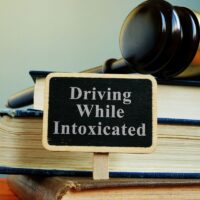Is DWI a Misdemeanor or a Felony?

Driving While Intoxicated (DWI) is a serious offense in New York, with penalties that can significantly impact your life. In most instances, DWI is a misdemeanor offense, but several factors can lead prosecutors to charge DWI as a felony. Below we explore both misdemeanor and felony DWI laws, explaining the different charges and potential penalties of each, and how to defend against either charge. If you or a family member has been arrested for DWI in Orange County or the Hudson Valley, contact Dupée & Monroe, P.C., for immediate assistance from an experienced and successful Goshen DWI defense lawyer.
Misdemeanor DWI
In New York, a first-time DWI offense is typically classified as a misdemeanor. This is true if there are no aggravating factors involved. Make no mistake: a misdemeanor DWI is considered a serious offense, even though it is less severe than a felony. A standard misdemeanor DWI charge may be levied against a driver with a Blood Alcohol Content (BAC) of 0.08% or higher but below 0.18%.
The penalties for a misdemeanor DWI can include:
- Fines ranging from $500 to $1,000
- Jail time of up to one year
- Probation for three years
- Mandatory attendance at a Victim Impact Panel
- Enrollment in a Drinking Driver Program (DDP)
- License revocation for at least six months
- Installation of an Ignition Interlock Device (IID)
These penalties are designed to deter future offenses and emphasize the importance of responsible driving.
Felony DWI
A DWI charge can be elevated to a felony under several circumstances. Repeat offenses, particularly within a specific timeframe, and certain aggravating factors can result in a felony DWI charge. Here are the primary situations that can elevate a DWI to a felony:
Repeat Offenses
A second DWI offense within ten years is classified as a Class E felony. Subsequent offenses can lead to even harsher classifications:
- Second DWI within ten years: Class E felony
- Third DWI within ten years: Class D felony
Aggravating Factors
Certain aggravating factors can also elevate a DWI charge to a felony. These factors include:
- BAC of 0.18% or higher: Known as Aggravated DWI, this is classified as a misdemeanor on a first offense but carries harsher penalties.
- Driving with a child passenger: Known as Leandra’s Law, driving intoxicated with a child under the age of 16 in the vehicle automatically elevates the charge to a felony, regardless of prior offenses.
- Causing injury or death: If a DWI results in serious injury or death, the charges can be elevated to vehicular assault or vehicular manslaughter, both of which are felonies.
Felony DWI charges carry more severe penalties compared to misdemeanors. The consequences can include:
- Higher fines: Ranging from $1,000 to $10,000
- Extended jail time: Up to seven years for a Class D felony
- Longer probation periods: Up to five years
- Longer license revocation: At least one year, potentially permanent
- Mandatory IID installation: For a period specified by the court
- Additional programs: Enhanced rehabilitative programs and community service requirements
Defending Against DWI Charges
New York prosecutors have discretion on whether to file a DWI as a misdemeanor or a felony, but the facts must support the charges filed, and every element of the charged offense must be proven beyond a reasonable doubt to secure a conviction. At Dupée & Monroe, P.C., our skilled litigators are experienced in fighting DWI charges in court, challenging the prosecution’s evidence, and demonstrating to the jury where reasonable doubt exists. In appropriate cases, we can negotiate with prosecutors to reduce a felony DWI charge to a misdemeanor or reduce a misdemeanor DWI to Driving While Ability Impaired (DWAI), which is a traffic infraction. For many, a plea bargain is a positive outcome that avoids jail time, reduces fines, and shortens the length of a driver’s license suspension.
If you are facing a DWI charge, whether a misdemeanor or a felony, it is essential to seek experienced legal representation. At Dupée & Monroe, P.C., we understand the complexities of New York’s DWI laws and the severe consequences a conviction can bring. Our team is dedicated to providing comprehensive defense strategies tailored to your unique situation. We thoroughly investigate each case, challenge evidence where appropriate, and strive to mitigate the impact of a DWI charge on your life.
Contact Dupée & Monroe After a DWI Arrest in Orange County or the Hudson Valley
If you or a loved one has been charged with DWI in Orange County or the Hudson Valley, call Dupée & Monroe, P.C. in Goshen at 845-294-8900. Our skilled attorneys are here to guide you through the legal system, protect your rights, and achieve the best possible outcome for your case. Call us today to schedule a consultation and take the first step toward defending your future.
